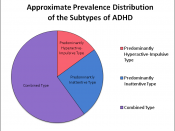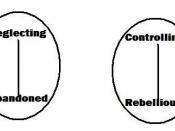IntroductionThe word "cognitive" or "cognition" means "to know" or "to think". Therefore, cognitive therapy is viewed as a "psychological treatment of thoughts." Simply, cognitive therapy operates under the assumption that thoughts, beliefs, attitudes and perceptual biases influence what emotions will be experienced and also the intensity of those emotions. (Robert Westermeyer, 2006)The following will be covering some of the tools used in Cognitive therapy for a verity of symptoms, such as Rational Emotional Behavioral therapy, Rational Behavioral therapy, and Decatastrophizing. Cognitive therapy was noted by Aaron Beck, M.D. for the treatment of depression. Dr. Beck and other researchers have developed methods for applying cognitive therapy to other psychiatric problems, such as panic, anger control problems and substance abuse. This form of therapy has received considerable research support, especially with regard to depression. (Robert Westermeyer, 2006).
Rational Behavior TherapyRational Behavior Therapy (RBT) is a short-term drug-free, cross-cultural, comprehensive theory and system of psychotherapy and self-help techniques.
It was developed by Maxie Maultsby, M.D. at the University of Kentucky and based, in part, on Rational-Emotive Therapy (RET) originated by Albert Ellis. (Joseph Stehno,1986) Rational Behavior Therapy holds that emotional responses are not caused by external events, but result from beliefs about those events. Rational Behavior Therapy believes in the "ABC Theory" of emotions. This thought is that a complete emotion has three components. These components are your perceptions, your beliefs, and your emotive response. Theorists who believe in this type of therapy believe that events do not cause our emotions but instead our thinking or beliefs do. Angry thoughts lead to angry feelings, depressing thoughts lead to depressing feelings, etc. (Rational Behavior Therapy in Experiential Learning. 1986) This theory advocates that one should challenge and replace those negative and depressing thoughts, or Irrational Self Talk, with positive thoughts and beliefs through the...


